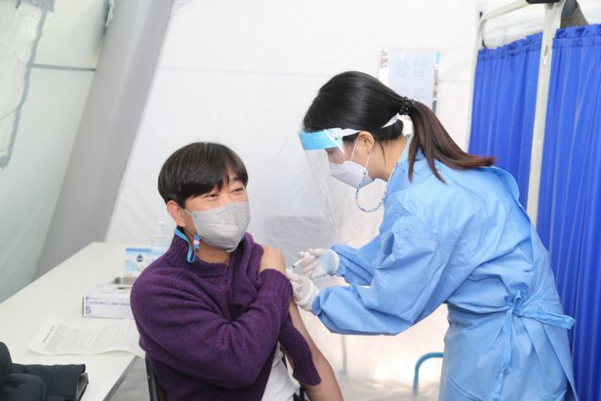One of the hoaxes that circulate on the covid-19 vaccines argues unsubstantiated that doses could affect fertility. However, from the Association of Reproductive and Clinical Scientists and the British Fertility Association of UK they have published a guide in which they affirm that “there is absolutely no evidence“that vaccines against SARS-CoV-2, the virus that causes covid-19, can affect the fertility of men or women.
“There is no evidence or theoretical reasons to support these rumors“, they collect in an article that has been published in the scientific journal The British Medical Journal (BMJ).
From the Spanish Association of Vaccination (AEV), have also echoed this publication, which ensures that “women who are going to undergo a Fertility treatment in any of its modalities can be vaccinated during treatment, although they may consider separating both procedures for a few days so that adverse effects (such as fever) can be correctly attributed to the vaccination or the fertilization procedure “, they summarize from the AEV.
The guide arises, collects The BMJ, “amid a concern that the misinformation circulating on the internet about covid-19 vaccines and fertility may discourage some women from receiving the vaccine. ”
The document prepared by the British medical associations resolves several doubts. On the one hand, when faced with the question of whether people of reproductive age can receive the covid-19 vaccine, specialists affirm that yes: “This includes those who are trying having a baby, as well as who are thinking, either in the near future or in a few years. “
Faced with the concrete doubt as to whether “any of the Covid-19 vaccines can affect fertility,” experts flatly state that “there is absolutely no evidence, nor no theoretical reason, that any of the vaccines can affect the fertility of women or men “.
Compatible with fertility treatments
The document also addresses the compatibility of vaccines with fertility treatments. After ensuring that the vials are also safe in these situations, the experts note the possibility of distancing them in time but only to be able to correctly attribute the side effects (if any) to each of the treatments.
When in doubt as to whether fertility treatment should be delayed until after receiving the covid-19 vaccine, the guide notes that “the only reason to consider delaying fertility treatment until after having been vaccinated would be if you wanted to be protected against covid-19 before becoming pregnant“.
In this sense, experts recall that chance ofsuccess in a fertility treatment is “unlikely” to be affected by a short delay, such as up to six months, especially if you are 37 years old or younger. However, delaying it for several months can “affect your chances of success if you are over 37 years old, especially after 40 years”, they state.
The British researchers add that fertility treatment can be started “immediately” after receiving the vaccine.
Egg donors
From the Association of Reproductive and Clinical Scientists and the British Fertility Association from the United Kingdom add that, if you are an egg or sperm donor, you can also receive a vaccine against covid-19. “Covid-19 vaccines do not contain any viruses, so you cannot transmit covid-19 by receiving the vaccine. The Human Fertilisation & Embryology Authorityhas declared what should allow at least 7 days from the most recent vaccination before donating eggs or sperm. If the donor feels unwell after vaccination, he should not donate for 7 days after the onset of symptoms, “they say.
Finally, specialists maintain that in case of spontaneous abortions recurrent, there is no reason to postpone immunization either: “It will not affect your risk of having a miscarriage,” says the guide.
In pregnant
For women with a positive pregnancy test, doctors recommend that if you are not at risk for covid-19, the Joint Committee on Vaccination and Immunization (JCVI) recommends delaying vaccination until after pregnancy. “There is no reason to believe that any of the covid-19 vaccines would be harmful, but their effects on pregnancy have not yet been sufficiently investigated“, they explain.
“The information that is known is reassuring. None of the vaccines contain live viruses, so there is no risk of a pregnant woman or her baby contracting covid-19 from the vaccine, “they abound.
In this sense, the pharmaceutical company Pfizer, which distributes the vaccine made by the German laboratory BioNTech, began a clinical trial with 4,000 pregnant women in nine countries, including Spain.
In addition to studying the evolution of women, all of them between weeks 24 and 34 of gestation, the study will also check the effects on the health of the babies when they are born and if, indeed, the mothers have transmitted the antibodies to them.
– .


